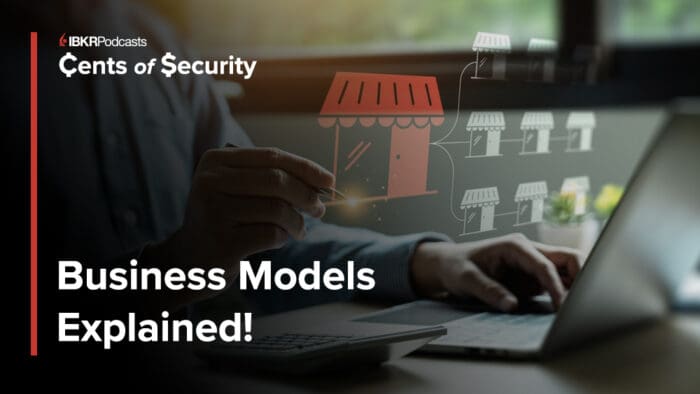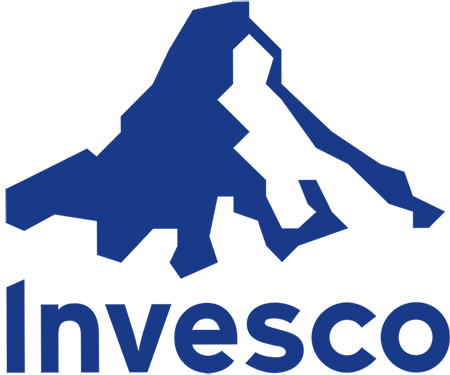Artificial intelligence (AI) presents many possibilities. The powerful and not fully understood technology can help companies make their workers more productive. Whether that leads to better or fewer workers (or both) remains to be seen. It’s also unclear which companies will prosper from the growth in productivity. As the technology is embraced across the economic spectrum, investors look out for the next big success story.
Ashley Oerth, a Senior Investment Strategy Analyst at Invesco, joined the Greater Possibilities podcast last July to discuss the possibilities of AI in the business world. As artificial intelligence continues to make inroads, we revisit that conversation. What types of companies may benefit from AI? What are the obstacles? What are the opportunities?
Here are some of her thoughts:
- Artificial intelligence is a nebulous concept that carries different meanings for different people. In the most basic form, it mimics human intelligence and decision-making by processing and categorizing data to respond to a prompt. This narrow AI is designed to do something specific.
- With the rise and release of ChatGPT, generative AI seemed to take the world by storm. The technology has been around for a while. But more computing power and better data have led to incremental improvements. These newer systems give the impression of understanding and creativity.
- Generative AI is essentially a prediction model. In terms of text, a chatbot can predict the words that flow from a question. It’s trained to respond with the most likely words. But the answer won’t necessarily be the same every time. The tools are probabilistic rather than deterministic, meaning the sort of dice roll that happens each time leads to different responses.
- Generative AI systems have proved capable of creating in mediums besides text, including images, audio, and video. The technology has moved beyond science fiction to real-world applications that the public can experiment with. The tools are flexible enough to respond naturally in many different scenarios. This has created excitement and apprehension.
- It’s not clear if AI will ever be able to do any of the more intellectually challenging jobs. The technology can learn, and it can create increasingly convincing facsimiles that give impression of thinking. But AI doesn’t have ideas. It can’t critically analyze a problem. The technology recognizes interconnected topics based on training data. Rather than taking over for knowledge workers, the tool will more likely be paired with them as part of their regular workflows.
- Ashley described three types of companies that may benefit from AI: enablers, adopters, and responders. Enablers are companies with products and services to help build and train AI models, such as producers of semiconductors, mega-cap tech names, and owners of large stores of data. Adopters are companies that can integrate AI models to create efficiencies in their businesses. Responders are companies that react to AI’s implications in society.
How are governments around the world are regulating AI?
From the dangers of “deepfakes” in US elections to the potential to accelerate economic growth in Asia, AI offers plenty of challenges and opportunities for governments around the world. Global Head of Public Policy Andy Blocker recently published a comprehensive summary of the different regulatory approaches to AI being taken in the US, Europe, and Asia-Pacific.
Read the Washington Newsletter special edition on Artificial Intelligence.
—
Originally Posted May 1, 2024
How does artificial intelligence affect investors? by Invesco US
Important information
NA3542355
This does not constitute a recommendation of any investment strategy or product for a particular investor. Investors should consult a financial professional before making any investment decisions.
All investing involves risk, including the risk of loss.
Many products and services offered in technology-related industries are subject to rapid obsolescence, which may lower the value of the issuers.
The opinions referenced above are those of the author as of May 1, 2024. These comments should not be construed as recommendations, but as an illustration of broader themes. Forward-looking statements are not guarantees of future results. They involve risks, uncertainties and assumptions; there can be no assurance that actual results will not differ materially from expectations.
Disclosure: Invesco US
This does not constitute a recommendation of any investment strategy or product for a particular investor. Investors should consult a financial advisor/financial consultant before making any investment decisions. Invesco does not provide tax advice. The tax information contained herein is general and is not exhaustive by nature. Federal and state tax laws are complex and constantly changing. Investors should always consult their own legal or tax professional for information concerning their individual situation. The opinions expressed are those of the authors, are based on current market conditions and are subject to change without notice. These opinions may differ from those of other Invesco investment professionals.
NOT FDIC INSURED
MAY LOSE VALUE
NO BANK GUARANTEE
All data provided by Invesco unless otherwise noted.
Invesco Distributors, Inc. is the US distributor for Invesco Ltd.’s Retail Products and Collective Trust Funds. Institutional Separate Accounts and Separately Managed Accounts are offered by affiliated investment advisers, which provide investment advisory services and do not sell securities. These firms, like Invesco Distributors, Inc., are indirect, wholly owned subsidiaries of Invesco Ltd.
©2024 Invesco Ltd. All rights reserved.
Disclosure: Interactive Brokers
Information posted on IBKR Campus that is provided by third-parties does NOT constitute a recommendation that you should contract for the services of that third party. Third-party participants who contribute to IBKR Campus are independent of Interactive Brokers and Interactive Brokers does not make any representations or warranties concerning the services offered, their past or future performance, or the accuracy of the information provided by the third party. Past performance is no guarantee of future results.
This material is from Invesco US and is being posted with its permission. The views expressed in this material are solely those of the author and/or Invesco US and Interactive Brokers is not endorsing or recommending any investment or trading discussed in the material. This material is not and should not be construed as an offer to buy or sell any security. It should not be construed as research or investment advice or a recommendation to buy, sell or hold any security or commodity. This material does not and is not intended to take into account the particular financial conditions, investment objectives or requirements of individual customers. Before acting on this material, you should consider whether it is suitable for your particular circumstances and, as necessary, seek professional advice.
















Join The Conversation
If you have a general question, it may already be covered in our FAQs. If you have an account-specific question or concern, please reach out to Client Services.